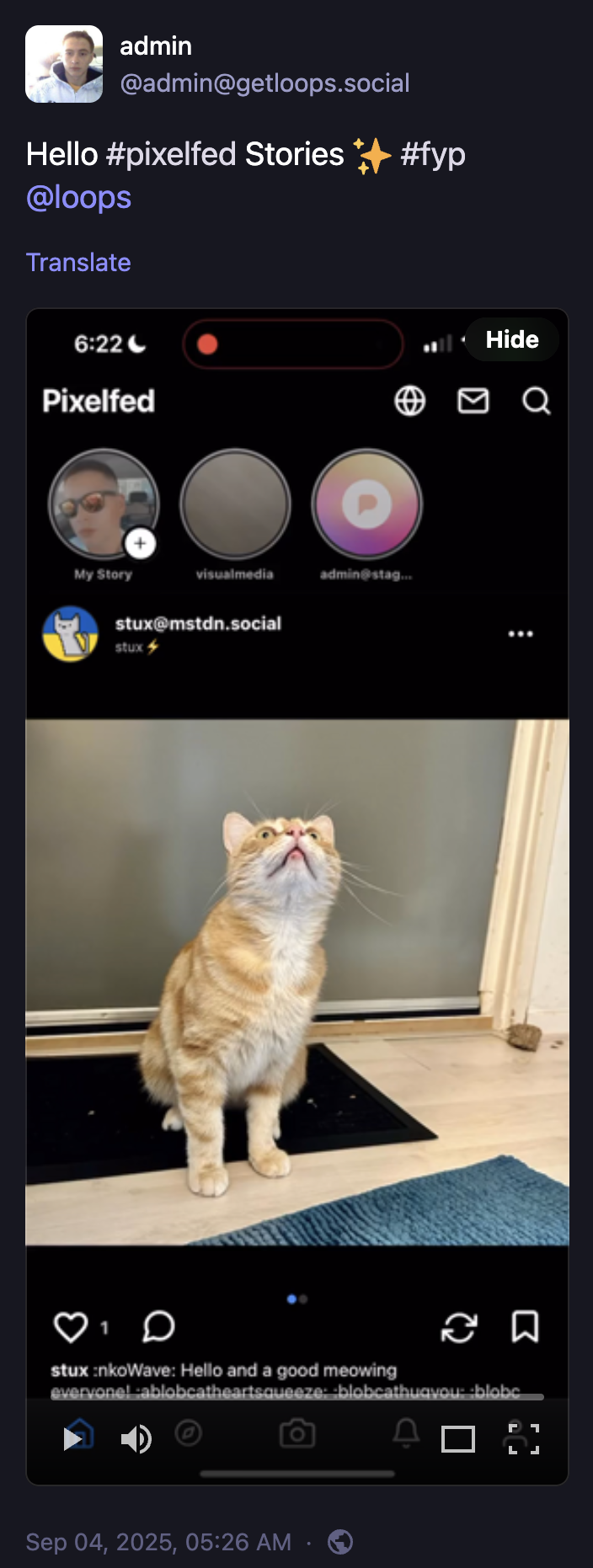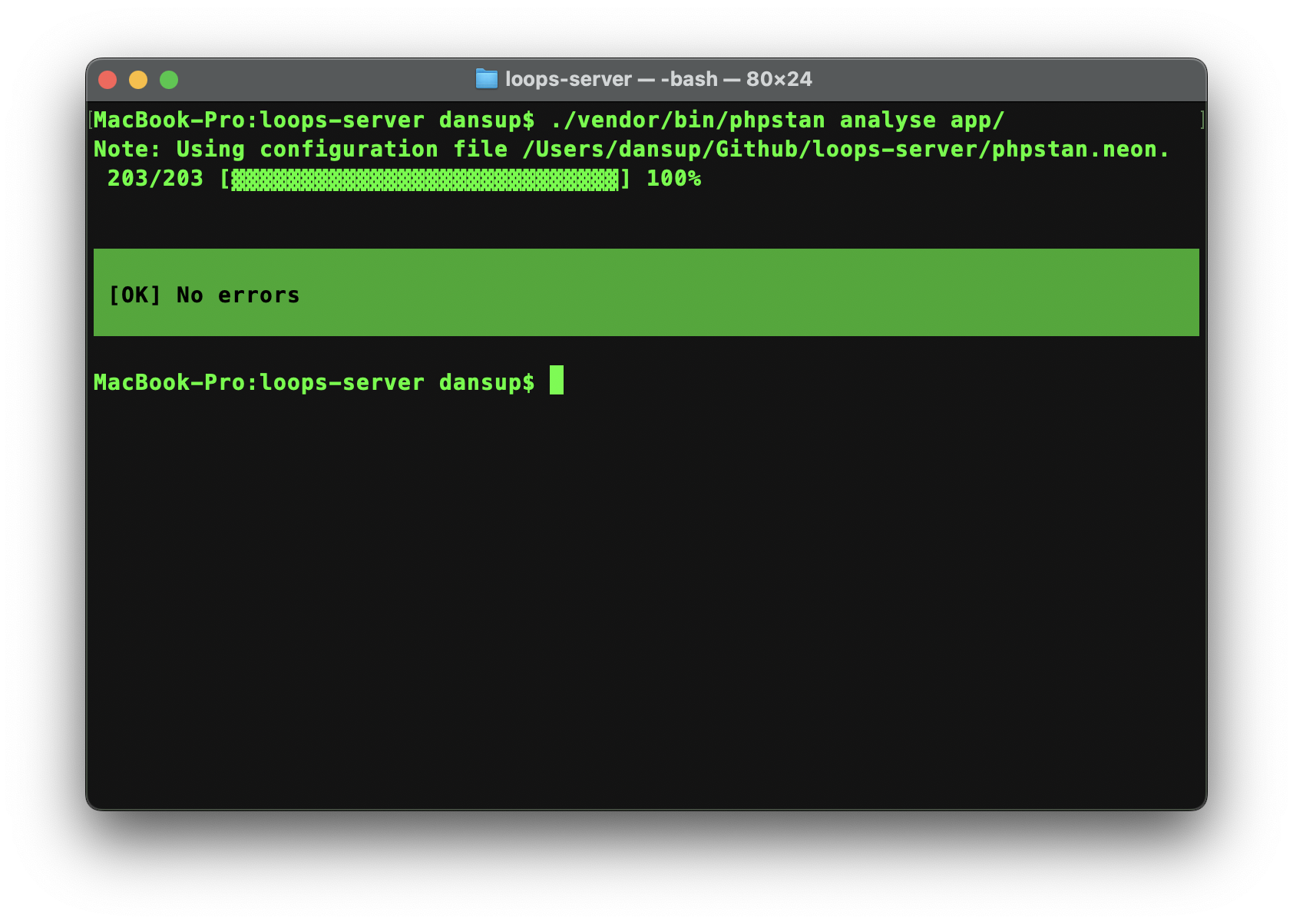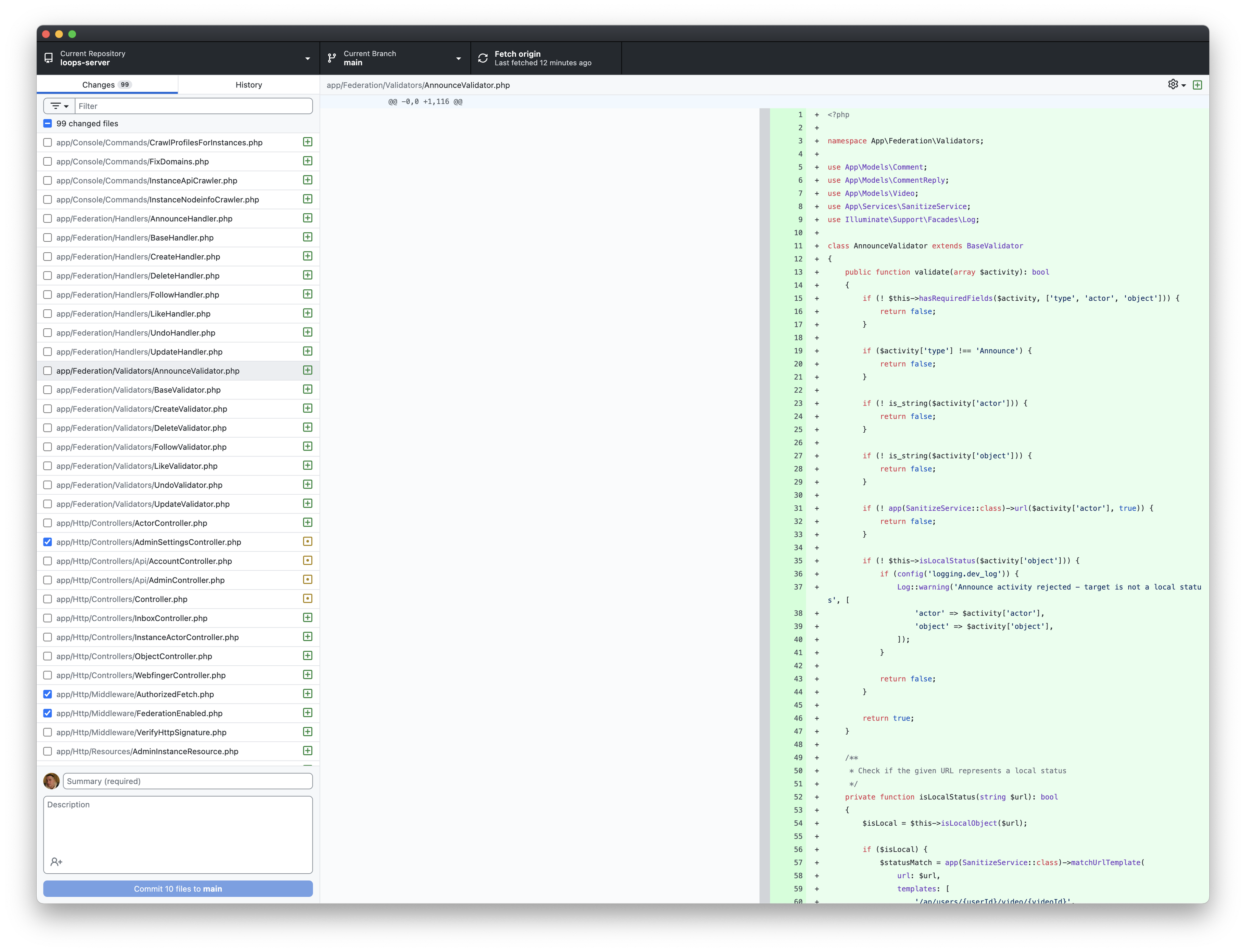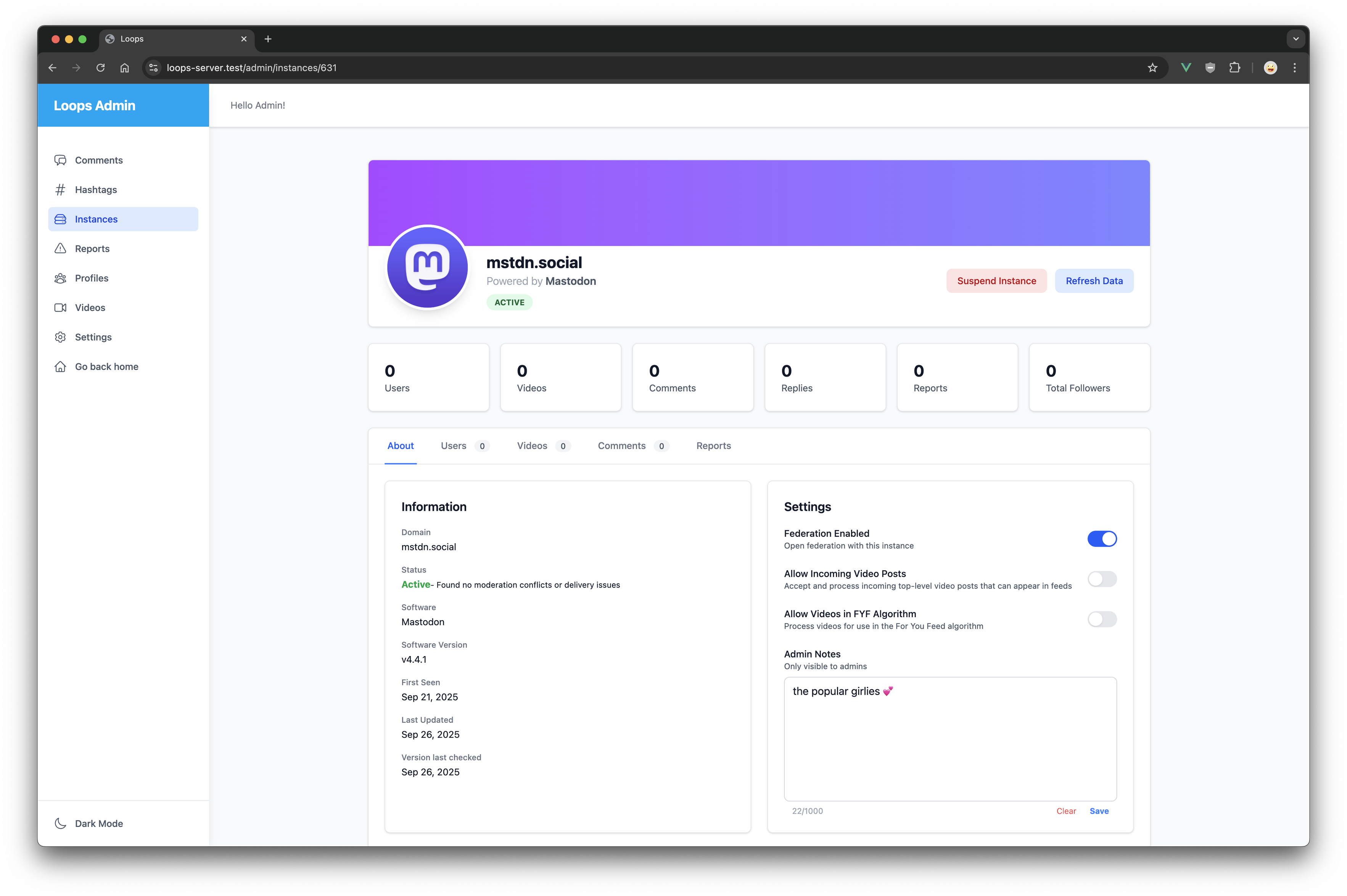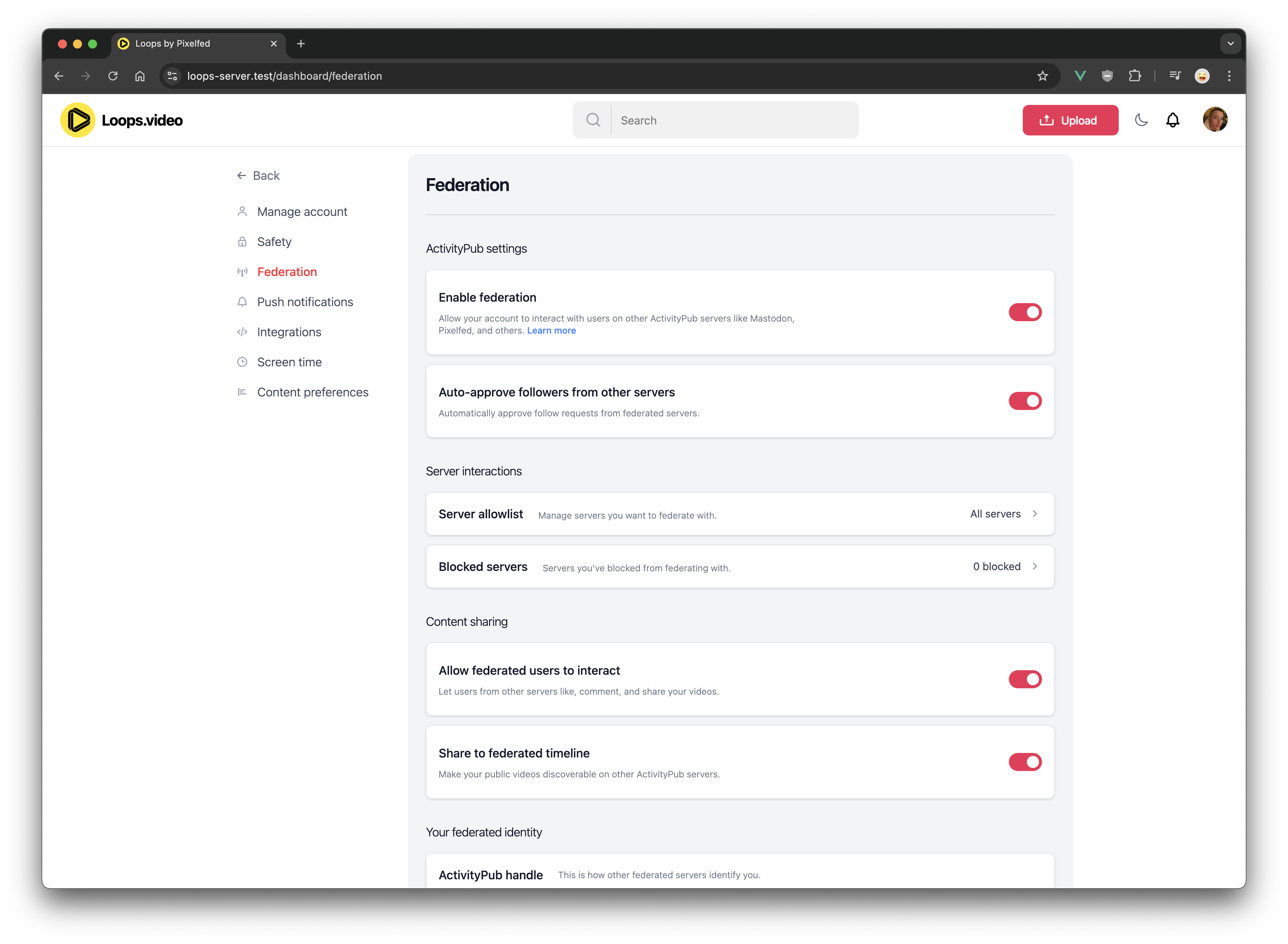Some interesting fediverse-related talks at this year's #FOSDEM open-source conference.
Live stream: https://live.fosdem.org/watch/h2215
Schedule: https://fosdem.org/2026/schedule/track/social-web/
Search results
Reading notes from the event that mention how Twitter was an improvement over RSS in terms of user experience.
Another good example would be people switching from pirating media over to signing up for streaming services. It was the easier option.
With Blacksky recently achieving full independence from Bluesky, and other projects following behind, it'll be interesting to see who will handle federation better.
http://scripting.com/2026/01/30/150403.html
#fediverse #federation #SocialMedia #bluesky #atmosphere #ATProto
#XMPP Summit
The next topic is #Onion #Routing 🧅
The XMPP Summit:
https://xmpp.org/2025/11/xmpp-summit-28/
Meet us at #FOSDEM 2026, too!
#jabber #chat #opensource #messaging #federation #Brussels, #Belgium #opensource #rtc #e2ee
Hum, trying out the Ghost Fediverse integration and for now I see:
- No Ghost -> Akkoma notes, but likes carry over
- Private mentions on both Akkoma and Mastodon are not sent to Ghost (or at least not displayed?)
Need more testing, but I hope to find the reason for this! I would love to have it fix or at least help
#Fediverse users worked together to make sure #Blacksky has a #Wikipedia page, arising from the need to educate users here about the project, starting in about September last year (https://assemblag.es/@inquiline/115166596826618536 )
I was sort of trying to cheerlead but you-all are who actually built the page! 🙏 ❤️
thanks to ![]() @Anne_Delong https://musician.social/@Anne_Delong/115321834133067505 among others.
@Anne_Delong https://musician.social/@Anne_Delong/115321834133067505 among others.
It's ironic that this page went live right as people are breaking their bridged connections to Bluesky because of ICE getting verified there +
Technical details are largely above my paygrade, but it's interesting that also today, Blacksky is running an appview of its own, per ![]() @mcc (linking out to Blacksky's Rudy Frasier)
@mcc (linking out to Blacksky's Rudy Frasier)
https://mastodon.social/@mcc/115917963359245981
Maybe there will be a way to stay bridged to Blacksky while remaining (ahem) defederated from Bluesky, from instances over here?
(mcc's 🧵 gives some back story here, and it [the thread not the story] begins in... September of last year)
“I feel like we're rebooting to the last version of the Internet that I felt uncomplicated joy about.”
![]() @CaseyCasey Newton,
@CaseyCasey Newton, ![]() @kevinKevin Roose and
@kevinKevin Roose and ![]() @pj on why they set up their Forkiverse fediverse server.
@pj on why they set up their Forkiverse fediverse server.
https://www.searchengine.show/the-fediverse-experiment/
#Fediverse #Federation #ActivityPub #Forkiverse #OpenSocial #OpenSocialWeb #Internet #Technology #Tech
Fediverse for Freedom
Andy Piper @andypiper@andypiper.co.uk
Finally, X seems to be crumbling. Here's why I think decentralised, federated social platforms offer the best opportunity for freedom.
Read more →Does anyone here have experience with federated Forgejo (v13.0.4)? I set it to enabled in the .ini file and restarted, but what will happen as a result? Can people who use other instances now star my repos, or do I need to configure something else?
Federating knowledge: exploring ways to bridge wikis and notes
Join the workshop at #39C3!
NEW DATE: day 4, TODAY at 13:40 @ Free Knowledge Habitat Workshop Area.
Most people and organisations have their very own way of acquiring, organising, archiving, sharing, and collaborating on knowledge repositories. A broad spectrum of opinions and approaches resulted in a diverse and rich ecosystem of knowledge management solutions. Nevertheless, this also implies scattered and disconnected knowledge sources. What would it mean to build bridges among wikis and federate knowledge?
This workshop is going to be heavily centred on a twofold discussion, exploring the challenge of federated knowledge starting from two questions.
- What does it mean to federate knowledge repositories?
- Instead of pursuing a silver-bullet solution to embrace all use-cases, what would it mean to foster and enable interoperability for different software?
These questions stem from years of questioning and wondering how to integrate my personal note-taking and collective, participatory knowledge management at work, in organisations, institutions, and informal collectives. Recently, I began actively researching this topic as I started playing with the MediaWiki API to cross-synchronise my local Markdown notes and the XPUB wiki, the public learning wiki of the Experimental Publishing master. I am puzzled by taking advantage of the potential of a specific software (in this case, MediaWiki) while fearing of being locked-in.
Some further, more specific, insights and questions:
- Local-first approaches and software (e.g. Reflection)
- Interesting experiments based on existing protocols, such as Ibis
- What do we take of semi-open and obscure yet very cool initiatives like Anytype
- The power and the limits of plain-text: how to enable collaboration on simple Markdown files and build on top of it, as Obsidian does
Cc: ![]() @modalModal Collective
@modalModal Collective ![]() @p2panda
@p2panda ![]() @obsidian
@obsidian ![]() @wikimediaDE
@wikimediaDE ![]() @dweb
@dweb
#knowledge #FreeKnowledge #wiki #MediaWiki #API #Obsidian #Anytype #Ibis #IbisWiki #Reflection #CCC #Federation #federatedKnowledge #docs #PKM #knowledgeManagement #personalKnowledgeManagement #collectiveKnowledgeManagement #DWeb #decentralization #ActivityPub
A blog publishing manga reviews with a political analysis, explaining harmful tropes and globally finding great readings to suggest (or titles to avoid):
https://mangaispolitical.noblogs.org/
Considering the manga industry rampant misogyny you can expect a focus on feminism.
This intro is redrafted after connecting to BridgyFed, but can people on Bluesky see that?
I would love to connect with like-minded manga enthusiasts and have people joining to publish together.
#manga #review #feminism #politics #socialscience #introduction #newhere #comics #mangareview #bluesky #federation
![]() @jwildeboerJan Wildeboer 😷
@jwildeboerJan Wildeboer 😷
![]() @sashin
@sashin
Have you heard any recent updates on the federation? Last time I checked (a few months back) it seemed to be in the "nice to have" category but not particularly actively being worked on.
I think Matrix still has my favorite decentralized service username schema. 
@user:domain.tld makes a lot of intuitive sense to me and looks really clean. It's really clear which part is the username and which is the domain without looking repetitive. It starts with an @ so it tells clients to pull up the username lookup when you start typing, but it doesn't get kludgy like other username schemas do.
user@domain.tld makes sense for email I guess because you can't really @ people inline, but it doesn't work well for other services because it doesn't start with an @ so it doesn't indicate to the client to pull up the username lookup. I'm curious how XMPP handles this. 
@user@domain.tld that Fedi uses looks awful to me. I hate the double @'s, it just doesn't scan very well and looks silly. Maybe it's just me, but I feel like my username is being flanked by boobies.  (Technically Fedi uses WebFinger/the email schema under the hood from the last example and the double @'s are just user-facing in order to trigger the inline username lookup, but meh, I'm including it.)
(Technically Fedi uses WebFinger/the email schema under the hood from the last example and the double @'s are just user-facing in order to trigger the inline username lookup, but meh, I'm including it.)
@domain.tld that Bluesky uses seems clean on the surface, but then you realize your username is (usually) just a domain name which is... weird.  Then you're stuck making a subdomain for your username if you couldn't get a dedicated domain for it, so then it becomes
Then you're stuck making a subdomain for your username if you couldn't get a dedicated domain for it, so then it becomes @user.domain.tld or even @user.subdomain.domain.tld which is just, like, idk a lot of dots.  It makes sense for ATProto because of how the DIDs work, but it's still not my favorite.
It makes sense for ATProto because of how the DIDs work, but it's still not my favorite.
I know I've made this ramble before but I'm like Fedi handles where I'm hopelessly repetitive 
#Matrix #MatrixChat #Federation #Fedi #Mastodon #ActivityPub #Bluesky #ATProto
I know #radicle project people will be at #39c3 but what about people working on forge #federation? I would love a world where we have strong competitive versions of both these ideas.
#XMPP Community
User & developers are spread #world-wide in the XMPP community!
This is a call to show where you are! 🌍🌎🌏
Post a photo with the XMPP #logo and a nice view of your location 📷
Add city name and country, too.
#jabber #chat #rtc #standards #decentralization #federation #messaging
We are currently fighting against a DDoS attack against our service and our status page. We are analyzing network traffic with the help of our ISP at the moment and let you know once we have updates to share.
Good luck! In the long run, there is only one serious defense against DDoS and other attacks: federation. I’m really looking forward to ![]() @forgejo
@forgejo
supporting federation for repository forks and pull requests.
🌐 中文(繁體)
偉大的聯邦宇宙各位朋友好 🙌
請問這裡有 Adobe InDesign 或 InCopy 的高手嗎?
我正在學習這兩款軟體,想了解一些 工作流程與協作方式。
另外也想請教:
有沒有推薦的 免費 InDesign 版型/範例網站?
匯出 EPUB 時,有什麼方法能避免 排版失真或跑版?
任何資源或經驗分享都非常感激 🙏
#adobe #indesign #incopy #epub #design #layout #publishing #workflow #federation #help
🌍 English
Hello, amazing Fediverse friends 🙌
Are there any Adobe InDesign or InCopy experts out there?
I’m currently learning both tools and looking for insights on workflow and collaboration.
Also wondering:
Any good free InDesign template/sample websites?
How can I export to EPUB without layout distortion?
Any tips, tutorials, or resources would be super appreciated 🙏
#adobe #indesign #incopy #epub #design #layout #publishing #workflow #fediverse #help
🇯🇵 日本語
フェディバースの皆さん、こんにちは 🙌
ここに Adobe InDesign や InCopy の達人はいらっしゃいますか?
今、この2つのソフトを勉強中で、ワークフローや共同作業のコツを知りたいです。
さらに教えてください:
無料で使える InDesign のテンプレート/サンプルサイト はありますか?
EPUB に書き出す時のレイアウト崩れを防ぐ方法は?
情報やアドバイスをいただけたら本当に助かります 🙏
#adobe #indesign #incopy #epub #デザイン #レイアウト #出版 #ワークフロー #フェディバース #help
We have a whole host of music discoveries that we're excited to share with you over the coming months as part of our #MirloMondays tag, but we don't believe in gatekeeping or only giving editorial to a select few. With that in mind, the floor is open for this week!
Post your Mirlo releases below and tell us a bit about what you make. 🎧🐦⬛
#Music #NewMusic #IndependentMusic #Musician #Musicians #Bands #SupportMusic
Also, here's a blog post about our plans to federate Mirlo!
https://mirlo.space/team/posts/funding-federating-mirlo
#Federation #Fedi #FediMusic #Music #NLNet #News #Musicians #MusicNews #Blog #Blogs
Another small step in Forgejo federation.
Getting Forgejo and mastodon services to talk had some unexpected pitfalls.
Mastodon only federates on port 443 for example, that means Forgejo needs to be able to listen on a privileged port even for testing. You can imagine the troubles setting up our e2e tests properly.
This is finally behind us and were now aiming to integrate the test into the automated test suite (with a lot of work already done by ![]() @famfo)
@famfo)
One of the powerful things about the Fediverse and Social Web is that people can follow you from anywhere!
People from the same server you are on.
But also people from other servers can follow you.
Should the ability for people on other servers to follow you be OFF by default?
And, only people on the same server you are on can follow you by default?
It’s not finished. It’s not perfect. But it’s real. 🥹
Loops is now open, built in public, and growing every day — laying the groundwork for a future where you can build your own TikTok.
A future where governments can’t censor you. Where corporations can’t control the conversation. Where the social web belongs to the people again.
This is how it starts. ✊
We are delighted to announce that we have received a grant from ![]() @NGIZeroNGI Zero open source funding
@NGIZeroNGI Zero open source funding ![]() @nlnet to federate Mirlo! We're also honoured to be included alongside so many other amazing projects that we look up to and are inspired by. 💪🐦⬛
@nlnet to federate Mirlo! We're also honoured to be included alongside so many other amazing projects that we look up to and are inspired by. 💪🐦⬛
More here: https://nlnet.nl/project/Mirlo/
#Funding #Federation #Federated #OpenSource #Music #Musicians #Fedi #Fediverse #Connectivity #ActivityPub
A 🧵on the ongoing #meansofproduction project - which is designed to enable #librarysocialism along with #federation of all types of libraries, especially #toollibraries, and even #Housing
You can find more info at https://meansofp.org/, and the codebase is #opensource at https://meansofp.org/.
We have a discord at https://discord.gg/DxUrwhDg - but also moving lots of the discussion here to #mastodon!
¡Hola a todos! 👋🏻
Nuestro servidor de Loops, (Loops.one) ya federa con el Fediverso desde la última actualización. 🎉🎉
Podéis buscar vuestros perfiles (por ejemplo el mío es ![]() @trankten@loops.one) y los posts directamente desde cualquier software compatible con ActivityPub.
@trankten@loops.one) y los posts directamente desde cualquier software compatible con ActivityPub. 
💡¡Algunas cosas aún están en pruebas y podrían no funcionar correctamente, así que por favor, cualquier bug no dudéis en avisar!
Welcome to Loops. Welcome to Fedi..Loops 😎
⛓️💥 https://loops.one
- Trankten

Loops has two federation modes, Open which is default, and another called Lockdown.
With Lockdown, you have to define allowed servers, allowing for greater control over your federation experience ✨
Loops is federating with Mastodon and Pixelfed 🥳
I'm still doing some tests, and will be pushing the ActivityPub PR shortly ✨
🧵1of2 #SmartGlasses aren't just "not ready yet." They're #surveillance devices by design.
![]() @Em0nM4stodonEm
@Em0nM4stodonEm  called Meta's Ray-Ban glasses exactly what they are: voyeurism tools.
called Meta's Ray-Ban glasses exactly what they are: voyeurism tools.
The #TechPress keeps reviewing them like consumer gadgets instead of acknowledging the harm potential.
Here's what's actually happening when these become mainstream:
1. Recording people without clear consent indicators.
2. Facial recognition in public spaces.
3. Data harvesting from every interaction.
4. Stalkers and harassers getting military-grade surveillance capabilities.
The #Fediverse community understands something Big Tech pretends not to: Technology isn't neutral. Design choices reflect values.
When Meta builds glasses that can secretly record, they're not solving problems.
They're creating new ones for the most vulnerable people.
Women, trans folks, activists, and marginalized communities already navigate constant surveillance and harassment.
Smart glasses amplify existing power imbalances in dangerous ways.
🧵2of2 This is why building ethical alternatives matters.
The #SocialWeb exists because we refused to accept that surveillance capitalism was inevitable.
We chose #federation over centralization.
#CommunityOwnership over corporate control.
We need the same approach for #WearableTech
Hardware that clearly indicates when it's recording. Software that keeps data local. Designs that prioritize consent over convenience.
The question isn't whether this technology will exist. It's who gets to control how it works.
Meta's approach serves advertisers and data brokers. A community-driven approach would serve actual human safety and dignity.
My framework: Technology should expand human agency, not reduce it.
When surveillance tools are marketed as consumer convenience, we have a responsibility to call out the real consequences for vulnerable people.
What's your take? How do we build wearable tech that serves community safety instead of corporate surveillance?
I was able to finish the Loops shared inbox handler and add support for `Flag` activities.
Thanks to phpstan, Loops will soon ship solid federation support with coverage for the most popular activities.
I can't wait to ship and tag v1.0.0-beta.1 🚀
Thanks to Pixelfed, I've made Loops a lot easier to install & manage.
Loops also handles comment threading, mentions, notifications and like/share/reply counters much better.
The upcoming federation PR is my biggest ever, and will bring full ActivityPub federation to Loops 😍
I've been busy wrapping up the final parts of Loops ActivityPub federation!
We will ship with two modes (Open and Lockdown), the latter allowing you to restrict federation with allowed instances only (and enforced via AuthorizedFetch)
You can also disable Federation support
I'll have a better ETA this weekend after some more testing ✨
Thanks to phpstan, this may even ship this weekend 🚀
So close…
Créer des groupes et partager vos évènements dans le #fediverse sans passer par les GAFAM 📅 🗓️ ?
Découvrez ![]() @mobilizon et son histoire : de sa création chez
@mobilizon et son histoire : de sa création chez ![]() @Framasoft à sa gestion actuelle avec l'association #Kaihuri ! 🎧
@Framasoft à sa gestion actuelle avec l'association #Kaihuri ! 🎧
👉 https://www.projets-libres.org/s04e02-mobilizon-partager-evenements-fediverse/
#podcast #LogicielLibre #logicielslibres #opensource #federation #mobilizon #gafam #degafam
#Forgejo federation can't come fast enough for you? Have you ever wished to help out, but specifications are too scary and you don't know where to start?
In that case, I have the perfect task for you (yes, you!): https://codeberg.org/forgejo/forgejo/issues/9282
I'm making great progress with ActivityPub federation + ![]() @loops
@loops
Let's gooooo 🚀
🐛 GTS-HolMirDas v1.2.1 Released - Important Bugfixes
Fixed some critical issues that prevented the RSS-based content discovery from working properly. Thanks for sharing, ![]() @christianteqqy
@christianteqqy
🔧 What's Fixed:
- Inline Comment Support: Fixed parsing of RSS feeds file when using inline comments
- Control Character Error: Resolved "URL can't contain control characters" error caused by comments in same line as URLs
- RSS File Parsing: Comments after # are now properly stripped from URLs
https://mastodon.social/tags/homelab.rss # 20 posts default
https://fosstodon.org/tags/docker.rss?limit=50 # 50 posts
📦 Update Instructions:
# Download latest version
wget https://git.klein.ruhr/matthias/gts-holmirdas/raw/v1.2.1/gts_holmirdas.py
# Restart your container
docker compose restart gts-holmirdas
#GoToSocial #RSS #ContentDiscovery #SelfHosting #OpenSource #Federation #Homelab #Docker
From: blenderdumbass . org
This article is published on a website which is powered by BDServer. And I'm trying to make this website support ActivityPub, so you could for example, subscribe to me from your Mastodon account. Yet it is easier said than done.
If you have any experience with ActivityPub, web-development or Python, please consider helping me. We have BDServ...
Read: https://blenderdumbass.org/articles/please_help_me_with_activity_pub
#activitypub #fediverse #mastodon #bdserver #python #programming #webdev #federation #API

Please Help Me With Activity Pub
This article is published on a website which is powered by BDServer. And I'm trying to make this website support ActivityPub, so you could for example, subscribe to me from your Mastodon account. Yet it is easier said than done. If you have any experience with ActivityPub, web-development or Python, please consider helping me. We have BDServer Matrix Chatroom.
blenderdumbass.org · blenderdumbass . org
Link author: ![]() Blender Dumbass ( J.Y.Amihud )@blenderdumbass@mastodon.online
Blender Dumbass ( J.Y.Amihud )@blenderdumbass@mastodon.online
Why on earth was the #ActivityPub protocol even let out the door without a well-specified and mandatory graceful, non-destructive key rotation scheme?
Yes I know the privacy issues. Those are not valid reasons to not have such a mechanism; it's a valid reason to not enable or use one.
What we're stuck with now is a ton of instances with absurdly long, legacy-algorithm keys (RSA-4096) with no way to replace them with shorter/better keys without effectively losing everything ever posted on the instance.
The protocol is only 7 years old! EC crypto was well-established at the time, and should have been the default.
And what happens once everyone has to replace the keys, because RSA is broken by quantum computers (I know, probably 100 years to go)? The #Fediverse will be a wasteland, with no instances trusting anything from any other instance, so all #Federation breaks down.
Sorry if I got some details wrong about what the protocol says. If I get flamed to death for being wrong, then I'll consider that a Good Thing(TM). I've been trying to find a way to rotate/replace keys for a while and all my searching turns up is either 1) confirmation that most people don't know or care about cryptography, or 2) https://socialhub.activitypub.rocks/t/key-rotation-notification/562 - which really isn't helpful.
If it is possible to gracefully rotate the key(s) of an instance/user, there really has to exist some documentation that explains clearly how to implement this in a server and how to exercise it as a server operator.
The iPad. Rainbow Looms. "Inception." They all arrived on the scene in 2010 — and so did we. In 2025, we're celebrating Flipboard's 15th birthday. Here's to the next 15 and more! Check out the spreadsheet here to discover all the Magazines you can find in the fediverse — and comment below if there's a publication you'd love us to federate.
https://about.flipboard.com/inside-flipboard/15-years-of-flipboard/
#Flipboard #FlipboardMagazines #ActivityPub #Federation #Fediverse #OpenSocial #OpenSocialWeb
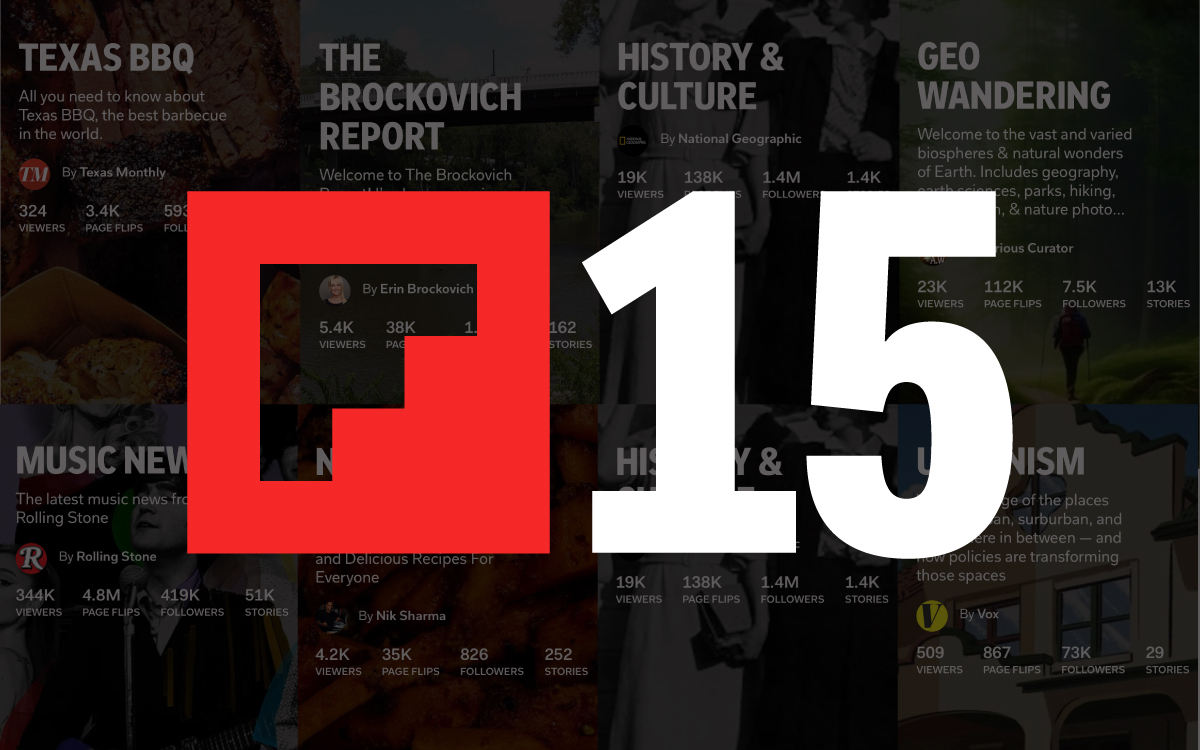
15 Years of Flipboard: Celebrating a Platform Built for Journalism, Curiosity and Community
Fifteen years after it launched, Flipboard remains a trusted destination for millions of people to follow the news, dive into their interests and connect with others.
about.flipboard.com · About Flipboard
Link author:  About Flipboard@blogs@about.flipboard.com
About Flipboard@blogs@about.flipboard.com
Concept for discussion: Replacing HTTP Signatures with Bearer Tokens for ActivityPub Federation
Curious what other people think about this idea. What if federation security was re-worked to use target-assigned bearer tokens to authenticate GET/POST requests? This would remove the need for complicated signing schemes and reduce system load under heavy traffic bursts (as no cryptography is required).
A basic implementation could look like this:
1. When instance A (a.example.com) first attempts to federate with instance B (b.example.com), a POST request is made to a dedicated registration endpoint. (for discussion, we'll say it's https://b.example.com/activity-pub/register-instance). This request includes fields necessary for verification, including the source domain name, target domain name, and a securely-generated verification token. Other metadata could be included to allow instance B to selectively allow/prohibit federation based on other criteria, but this is optional.
2. Instance B makes a POST request back to a dedicated verification endpoint on instance A (for discussion, we'll say it's https://a.example.com/activity-pub/verify-registration). This request must include the target domain name and verification token provided in step 2.
3. Instance A checks the verification token (and verify that it matches the target domain name) and return a successful value. The verification code must be invalidated after this call!
4. Instance B, after verifying instance A's request, returns a securely-generated federation key back to instance A. This federation key is a bearer token used to authenticate all requests from instance A to instance B. This key must be unique to instance A!
5. Instance A completes the original request with the Authorization header set to Bearer {federation_key}.
6. Instance B receives the request, detects the federation key, and checks it against the list of registered instances.
7. If the key does not exist or A has been defederated, then a 403 Forbidden error is returned.
8. If the key is expired or revoked, then 401 Unauthorized error is returned. Upon receiving a 401 error, instance A should start over from step 1 to re-authenticate and complete the request with a new token. This process should not be repeated for recursive failures!
9. If the key is approved, then a 200 OK response or 202 Accepted response is returned, and A can consider the request as successful.
Advantages versus HTTP Signatures:
- No cryptography requirements.
- Simple logic, no edge cases around HTTP query parameters or header order.
- Equally effective for all request types.
- Keys can be easily revoked or rotated.
- Supports authorized fetch and defederation use cases "by default".
Disadvantages versus HTTP Signatures:
- Breaks the actor model - instances are required as a first-class concept. (but really, the actor model is basically dead already. you can't even federate reliably without a WebFinger server, at minimum.)
- Requires multi-request "handshake" before communication. (but this is already required in practice, since a signature can't be validated without first requesting the signing actor.)
- Out-of-band protocol - communication can't happen over ActivityPub / ActivityStreams because this is a prerequisite to authenticate any request. (but again, we already require WebFinger and some software requires NodeInfo for full support.)
So, what are your thoughts? Good idea? Bad idea? Did I miss something? Please let me know, I welcome replies here!
#ActivityPub #AP #Federation
Socialhome v0.22.0 released, with a completely new UI!

This is a massive milestone for the #Socialhome project, one that could not have been possible without the hard work of ![]() @alain@jase.socialAlain St-Denis. If you have followed the Socialhome project, you'll know that Alain has been responsible for most of the development of project in the recent years. This includes rewriting the #federation library to ensure #ActivityPub support is first class. More recently Alain has taken the challenge of rewriting the frontend, which has fallen into a rather poor state over the years.
@alain@jase.socialAlain St-Denis. If you have followed the Socialhome project, you'll know that Alain has been responsible for most of the development of project in the recent years. This includes rewriting the #federation library to ensure #ActivityPub support is first class. More recently Alain has taken the challenge of rewriting the frontend, which has fallen into a rather poor state over the years.

The new UI work is actually a coordination of two people working many years apart. Way back years ago ![]() @lightone@mastodon.xyzlostinlight made some UI designs for a new Socialhome UI (thank you! <3). While the designs were not implemented for years, they were not forgotten. In 2023 Alain jumped to the challenge and started the full UI rewrite of the Socialhome frontend. This UI has now matured into a state that it is good for daily usage - which is the main focus of this release!
@lightone@mastodon.xyzlostinlight made some UI designs for a new Socialhome UI (thank you! <3). While the designs were not implemented for years, they were not forgotten. In 2023 Alain jumped to the challenge and started the full UI rewrite of the Socialhome frontend. This UI has now matured into a state that it is good for daily usage - which is the main focus of this release!
Currently, a Socialhome installation will still default to the old UI. If you do want to try out the new UI for example on socialhome.network, go to the account settings and toggle the "New UI" flag. Going back is also easy, should the new UI cause unforeseen issues (please do report!).

If you are a server admin, see the new UI installation instructions for how to add the new UI to your instance.
This is not all! The releases of v0.21.0 and v0.22.0 also contain a bunch of other changes and fixes. Most notably;
- ActivityPub profiles are now richer, including bio and a larger picture, in addition to an avatar.
- Many new API's to support the new UI, including session authentication, search, media upload, content fetching over uuid, profile organize and profile settings.
- Whoosh has been replaced with Xapian as a search index backend.
See the full changelogs. Additionally, the federation library has received a ton of changes and fixes which can be found here.
Also, last but not least, we moved from GitLab to Codeberg. Check out the new repositories.
Installing and updating
We recommend using the Docker images (amd64/arm64).
Notes on how to use the Docker images can be found in the docs.
What is Socialhome?
Socialhome is best described as a federated personal profile with social networking functionality. Users can create rich content using Markdown. All content can be pinned to the user profile and all content will federate to contacts in the federated social web. Federation happens using the ActivityPub and Diaspora protocols.
Please check the official site for more information about features. Naturally, the official site is a Socialhome profile itself.
Try Socialhome?
If you want to try Socialhome first before trying to install it, register at https://socialhome.network and then ping us with a comment on the user name chosen to get the account approved. You can also request account approval in the chat room. This unfortunately approval step is due to spammers.
Contribute
Do you want to work on a Django and VueJS powered social network server? Join in the fun! We have easy to follow development environment setup documentation and a friendly chat room for questions.
#socialhome #federation #fediverse #activitypub #diaspora #django #vuejs
#Forgejo 12.0.0 was just released!
Learn about it in detail in the blog post:
https://forgejo.org/2025-07-release-v12-0/
We recommend that all installations are upgraded to the latest version.
Check out the release notes and download it at https://forgejo.org/releases/. If you experience any issues with this release, please report to https://codeberg.org/forgejo/forgejo/issues.
![]() @forgejo My personal highlight of this release: You can now use your #fediverse handle in #markdown documents and it will be marked up as a link to your user profile (or group, etc.).
@forgejo My personal highlight of this release: You can now use your #fediverse handle in #markdown documents and it will be marked up as a link to your user profile (or group, etc.).
https://forgejo.org/2025-07-release-v12-0/#redirecting-fediverse-handles
I'm excited about the future, when mentioning fediverse handles will actually be federated and will send notifications everywhere!
#Forgejo #Federation #forgefed
From: blenderdumbass . org
This article is published on a website which is powered by BDServer. And I'm trying to make this website support ActivityPub, so you could for example, subscribe to me from your Mastodon account. Yet it is easier said than done.
If you have any experience with ActivityPub, web-development or Python, please consider helping me. We have BDServ...
Read: https://blenderdumbass.org/articles/please_help_me_with_activity_pub
#activitypub #fediverse #mastodon #bdserver #python #programming #webdev #federation #API

Please Help Me With Activity Pub
This article is published on a website which is powered by BDServer. And I'm trying to make this website support ActivityPub, so you could for example, subscribe to me from your Mastodon account. Yet it is easier said than done. If you have any experience with ActivityPub, web-development or Python, please consider helping me. We have BDServer Matrix Chatroom.
blenderdumbass.org · blenderdumbass . org
Link author: ![]() Blender Dumbass ( J.Y.Amihud )@blenderdumbass@mastodon.online
Blender Dumbass ( J.Y.Amihud )@blenderdumbass@mastodon.online
My activitypub enabled blog enables me to respond to comments made by those on the fediverse. However, the link says 'Reply with federation', and I keep thinking that I need permission from ![]() @georgetakeiGeorge Takei
@georgetakeiGeorge Takei  🏳️🌈🖖🏽 before I can do that. 🤣
🏳️🌈🖖🏽 before I can do that. 🤣
wanderer: Decentralized trail database: #wanderer by ![]() @flomp is a new, #opensource, #decentralized #trail database where you can upload tracks (or import them from #STRAVA or #Komoot), create or share routes, and connect with communities through #ActivityPub-powered #federation.
@flomp is a new, #opensource, #decentralized #trail database where you can upload tracks (or import them from #STRAVA or #Komoot), create or share routes, and connect with communities through #ActivityPub-powered #federation.
https://spatialists.ch/posts/2025/07/09-wanderer-decentralized-trail-database/ #GIS #GISchat #geospatial #SwissGIS

wanderer: Decentralized trail database – Spatialists – geospatial news
#wanderer is a new, #opensource, #decentralized #trail database where you can upload tracks (or import them from #STRAVA or #Komoot), create or share routes, and connect with communities through #ActivityPub-powered #federation.
spatialists.ch · Spatialists – geospatial news
Link author: ![]() Spatialists@spatialists@mapstodon.space
Spatialists@spatialists@mapstodon.space
Doctor and Patient in the Fediverse of Madness (love the title)
https://www.youtube.com/watch?v=BLyhUp-KKvQ&t=1201
Definitely worth your watch!
Thank you ![]() @wernerkeil and
@wernerkeil and ![]() @javapro for this video.
@javapro for this video.
Just follow the tags to see what it's all about 
#Federation #Mastodon #BlueSky #ActivityPub #Matrix #Healthcare #Java
Just built something I don't think any other fediverse project has: ultra-granular federation controls.
Loopers can pick exactly which servers to federate with, go local-only, or even pause delivery.
It was tough to code, but our community deserves this power ❤️
Meine Deutsch-palestinischen Freunde (ich wusste nicht dass ich so viele habe) wechseln gerade alle zu https://upscrolled.com/, mit dem Versprechen freisprechen zu können. Ich mache mir Sorgen, dass sie nur in die nächste Falle laufen. Vielleicht kann man sie überreden, dass sie wenigstens Activity Pub einbinden.
-------------------------
My German-Palestinian friends (I didn't know I had so many) are all switching to https://upscrolled.com/, with the promise of being able to make free calls. I'm worried they're just walking into the next trap. Maybe we can persuade them to at least integrate Activity Pub.
--------------------------
أصدقائي الألمان الفلسطينيون (لم أكن أعلم أن لدي الكثير منهم) ينتقلون جميعًا إلى https://upscrolled.com/، مع وعد بإمكانية التحدث مجانًا. أنا قلق من أنهم يقعون في الفخ التالي. ربما يمكن إقناعهم على الأقل بدمج Activity Pub
#upscrolled #activitypub #freespeech #palestine #freenetwork #federation
Undead Network is direct action. Even in the digital world, autonomy is possible. NO MASTER - NO SLAVE.
#art #autonomy #federation #fediverse #FOSS #freedom #music #opensource
![]() @stefanoStefano Marinelli I do! It’s wonderful how #federation makes discovery of informational projects like yours easy and efficient. ☀️
@stefanoStefano Marinelli I do! It’s wonderful how #federation makes discovery of informational projects like yours easy and efficient. ☀️
Ghost’s ![]() @johnonolanJohn O'Nolan and WordPress’s
@johnonolanJohn O'Nolan and WordPress’s ![]() @pfefferleMatthias Pfefferle want to help blogs and long content thrive on the open social web. Meet “the longformers,” who chatted to
@pfefferleMatthias Pfefferle want to help blogs and long content thrive on the open social web. Meet “the longformers,” who chatted to ![]() @mikeMike McCue for the latest edition of Dot Social.
@mikeMike McCue for the latest edition of Dot Social.
https://about.flipboard.com/fediverse/john-onolan-and-matthias-pfefferle/
#DotSocial #Ghost #WordPress #Fediverse #FederatedMedia #ActivityPub #Federation
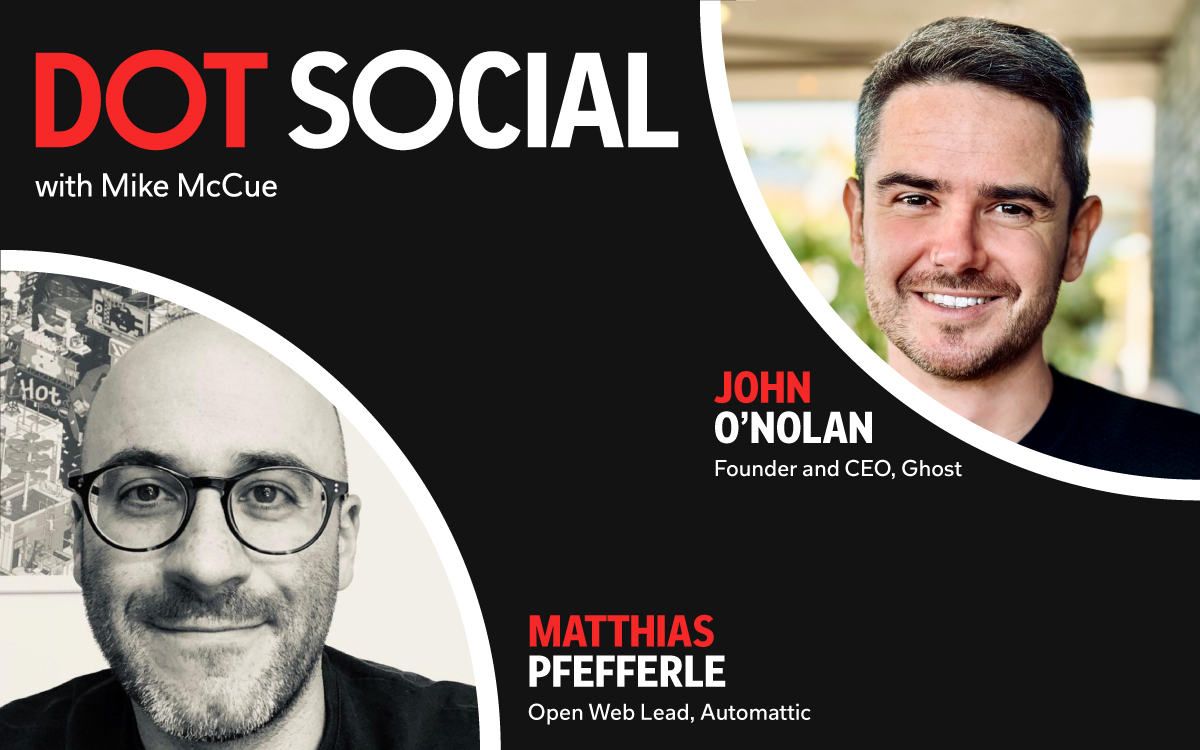
Rediscovering the Magic of the Blogosphere, with John O’Nolan and Matthias Pfefferle
Ghost’s John O’Nolan and WordPress’s Matthias Pfefferle want to help blog content thrive on the open social web. Meet “the longformers.”
about.flipboard.com · About Flipboard
Link author:  About Flipboard@blogs@about.flipboard.com
About Flipboard@blogs@about.flipboard.com
I think I finally have this thing complete - the paper is live hosted on a little test node, also lives as README.md on the GitHub.
https://idens.net/iden://z1HRUsTNcYMkN5WPm9s1YjGaLUVs58RVRHPjBrV1kYwdAJ.642/pub
#P2P #distributed #text #smallweb #markdown #data #linkeddata #python #rust #rustlang #linux #unix #longread #code #opensource #helloworld #federation #peer2peer #peerreview #writing
From: blenderdumbass . org
This article is published on a website which is powered by BDServer. And I'm trying to make this website support ActivityPub, so you could for example, subscribe to me from your Mastodon account. Yet it is easier said than done.
If you have any experience with ActivityPub, web-development or Python, please consider helping me. We have BDServ...
Read: https://blenderdumbass.org/articles/please_help_me_with_activity_pub
#activitypub #fediverse #mastodon #bdserver #python #programming #webdev #federation #API

Please Help Me With Activity Pub
This article is published on a website which is powered by BDServer. And I'm trying to make this website support ActivityPub, so you could for example, subscribe to me from your Mastodon account. Yet it is easier said than done. If you have any experience with ActivityPub, web-development or Python, please consider helping me. We have BDServer Matrix Chatroom.
blenderdumbass.org · blenderdumbass . org
Link author: ![]() Blender Dumbass ( J.Y.Amihud )@blenderdumbass@mastodon.online
Blender Dumbass ( J.Y.Amihud )@blenderdumbass@mastodon.online














